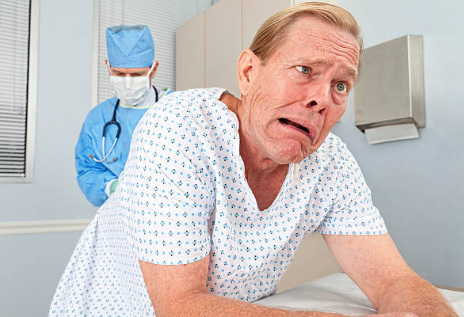Prostate Cancer: Your Guide to Understanding and Overcoming
Prostate Cancer: Your Guide to Understanding and Overcoming
They say knowledge is power, and when it comes to your health, that statement couldn’t be truer. Let’s talk about prostate cancer – a diagnosis that may strike fear initially, but one that you can very well face with the right information. This guide will help you understand the basics, from what to watch out for to the latest treatment options available.
What is Prostate Cancer?
The prostate is a walnut-sized gland that’s part of the male reproductive system. Prostate cancer is a disease where cells in the prostate grow abnormally. It’s one of the most common cancers in men, but don’t let that frighten you– the good news is it’s also highly treatable in the early stages.
Prostate Cancer Symptoms: What Should I Look Out For?
Tricky thing about early prostate cancer – it might not have any obvious symptoms. But as the disease progresses, you might notice things like:
- Trouble urinating: This could mean a weak or interrupted flow, difficulty starting or stopping, or an increased need to urinate, especially at night.
- Pain or burning during urination
- Blood in your urine or semen
- Discomfort in the pelvic area
- Bone pain
- Erectile dysfunction
Important Note: These symptoms can also be caused by other conditions, so don’t panic! The best thing you can do if you notice any of these is see your doctor.
Prostate Cancer Stages: What Do They Mean?
To determine the right course of treatment, doctors need to figure out the stage of your prostate cancer. It’s a way to describe how far it’s spread:
- Stage 1 & 2: Cancer is confined to the prostate.
- Stage 3: Cancer has spread beyond the prostate to nearby tissues.
- Stage 4: Cancer has spread to other parts of the body like bones or lymph nodes.
Prostate Cancer Treatment: Your Options
Treatment depends on a lot of factors, like your age, overall health, and the stage of the cancer. Your doctor will create a plan that’s unique to your situation. Some common treatments include:
- Active Surveillance: For slow-growing cancer, sometimes the best approach is watching and waiting. You’ll have regular checkups to monitor things.
- Surgery: The prostate may be removed in a procedure called a prostatectomy.
- Radiation Therapy: There are several types, all using high-energy beams to kill cancer cells.
- Hormone Therapy: This blocks the production of testosterone, which fuels prostate cancer growth.
- Chemotherapy: These are powerful drugs used for advanced cancer.
- Immunotherapy: Helps your body’s own immune system fight the cancer.
Signs of Prostate Cancer: Is It Time for a Checkup?
Here’s where those risk factors come in:
- Age: The older you get, the greater the risk. It’s rare in men under 40.
- Family History: If close relatives had prostate cancer, you’re more likely to develop it.
- Race: Prostate cancer disproportionately affects men of African descent.
If you tick any of those boxes, it’s doubly important to stay ahead of potential trouble – talk to your doctor about when to start regular screenings.
Metastatic Prostate Cancer: When Cancer Spreads
“Metastatic” means cancer has spread beyond the prostate. Treatment is focused on controlling the cancer and its symptoms for as long as possible.
Prostate Cancer Survival Rates: Looking to the Future
Great news: Survival rates for prostate cancer are high, especially with early detection. It’s one of the most treatable forms of cancer!
Cure for Prostate Cancer: Is It Possible?
While there’s no guaranteed cure, treatments can often put prostate cancer into remission. This means there’s no detectable sign of it, and it might effectively be considered cured.
5 FAQs based on this article addressing common concerns:
1. I have some of the symptoms you mentioned – does that mean I definitely have prostate cancer?
No, it doesn’t. The symptoms listed can overlap with less serious conditions like benign prostatic hyperplasia (BPH) or prostatitis. Don’t jump to conclusions, but definitely see your doctor for a proper diagnosis.
2. My doctor recommended “active surveillance”. Does this mean they’re not taking my cancer seriously?
Not at all! Active surveillance is a legitimate choice for early-stage, slow-growing prostate cancers. It’s about monitoring your situation closely and taking action if things change, avoiding unnecessary treatment if the cancer isn’t currently a major threat.
3. What’s the difference between all the radiation therapies I hear about?
There are different technologies to deliver radiation. They all work toward the same goal, but differ in terms of how focused the beam is, the number of treatments needed, and potential side effects. Your doctor will recommend the best type for your specific case.
4. Is there a way to prevent prostate cancer?
Unfortunately, there’s no foolproof prevention. However, healthy lifestyle choices like a balanced diet and exercise promote overall health and may lower your risk. Regular screenings are key if you have risk factors.
5. If I’m diagnosed with prostate cancer, will I automatically lose my sex life?
Not necessarily. While some treatments can cause side effects like erectile dysfunction, there are ways to manage them. Discuss your concerns with your doctor openly. Advances in treatment mean preserving sexual function is often possible.

